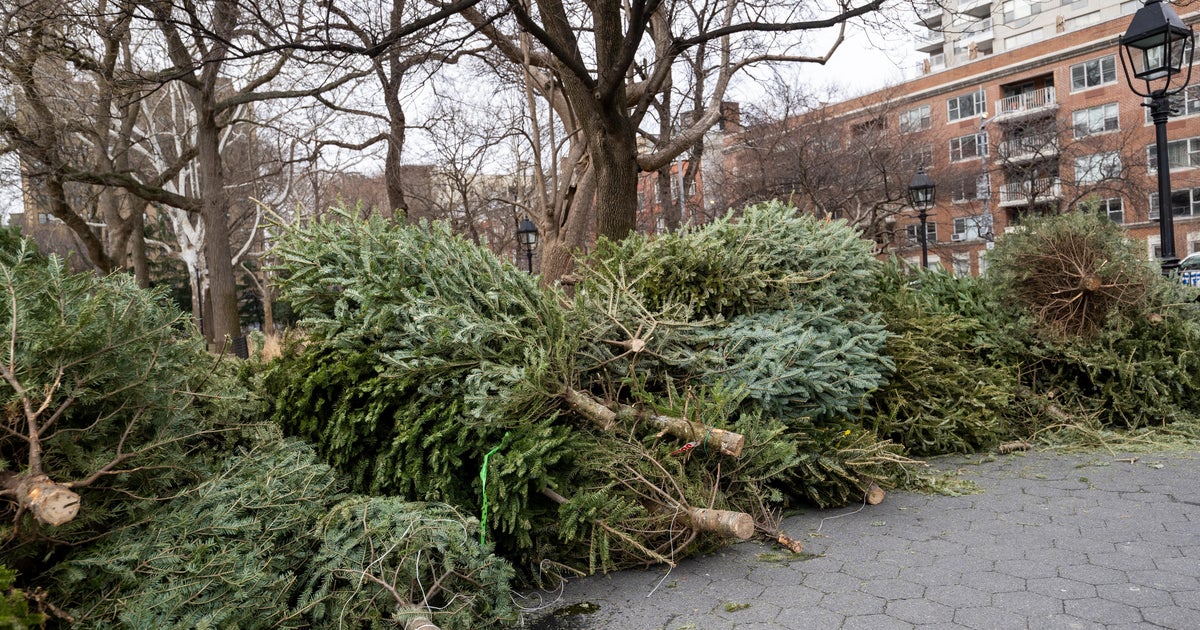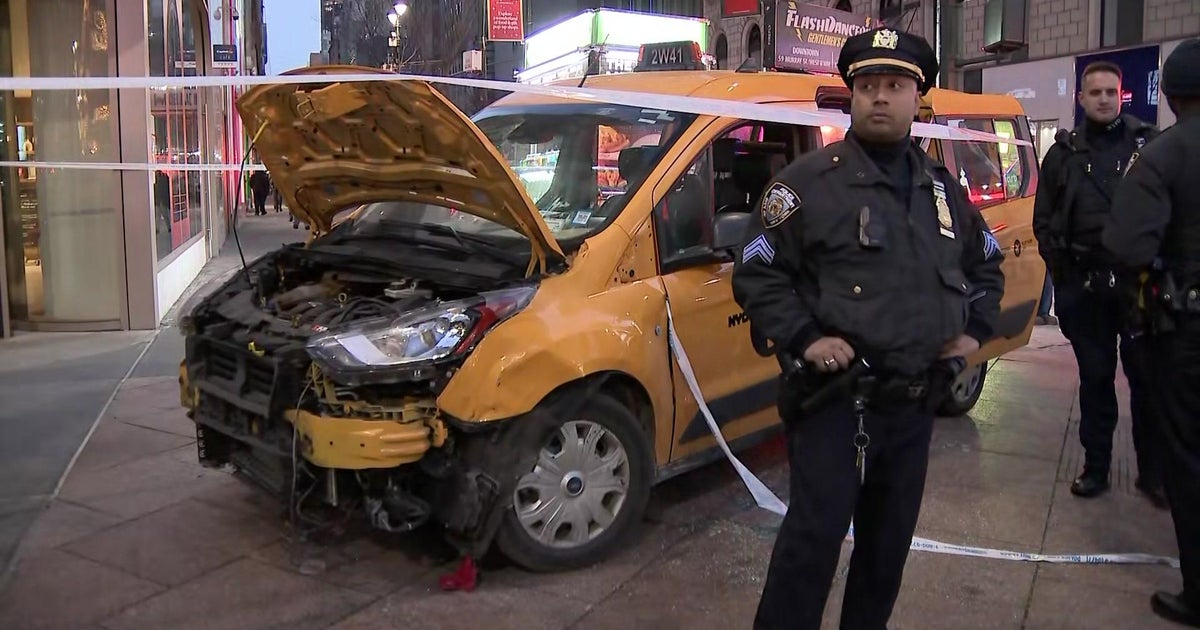Gov. Andrew Cuomo Stands Against Millionaire's Tax
ALBANY, NY (AP / WCBS 880) - The push for a higher tax on New Yorkers making more than $1 million a year is getting fresh life with a new poll showing overwhelming support, a high-profile rally on Monday and the strengthening Occupy Wall Street protest in New York City.
WCBS 880's Peter Haskell On The Story
Podcast
The Siena College poll found 72 percent of New York voters support the tax to avoid further budget cuts. Just 26 percent oppose the proposal by powerful Assembly Speaker Sheldon Silver.
Also Monday, the union-backed "99 New York'' rally supported extending the current so-called "millionaire's tax'' on New Yorkers with incomes over $200,000. It's due to expire Dec. 31.
Standing in the way of renewing the current surcharge on the wealthy and Silver's millionaire tax plan are Democratic Gov. Andrew Cuomo and his fiscal ally, the Republican majority of the Senate. Cuomo says taxing wealthier New Yorkers at higher levels would likely send the rich to Connecticut and New Jersey, taking their income tax revenue and jobs with them.
"People will say in the polls 'Reduce my taxes, but don't reduce my services,'" Cuomo said on Monday. "People don't want more money. People want better results - educate my children, pave the streets, keep me safe, get me results."
He believes a higher income tax would put New York at a competitive disadvantage.
The GOP Senate promised fiscal restraint and no new or higher taxes when it regained the power and perks of the chamber's majority in elections two years ago. Republican senators face the next challenge to their power next year in a state where Democrats hold nearly a 2-to-1 enrollment advantage.
But now, tax revenues are running behind projections, a $2 billion deficit looms, and schools and hospitals are howling after two years of flat state budgets capped by an overall cut in spending in April. And the public opinion polls and Occupy Wall Street protest are drawing attention to public unrest.
"Politicians are already starting to, grudgingly, take notice,'' said Kelly Heresy from Occupy Wall Street, a demonstration started in New York City that's drawing national and global support and attention. Protesters say they are trying to limit the power and privilege of the wealthy.
Heresy, a writer, said protesters' concerns are "not really represented by the politicians, who are mainly working on behalf of their biggest fund raisers - the corporations and banks.''
"The world is changing and, as always, elected officials will be the last one on the train,'' said Richard Brodsky, a former Democratic assemblyman and now a senior fellow at the Wagner School at New York University who has been at Occupy Wall Street.
Brodsky and other supporters say the Occupy movement has riveted public attention on the need to tax the rich more. In an opinion piece Monday in the New York Daily News, he proposed a state jobs and infrastructure repair program paid for by a three-year millionaire's tax.
Advocates for social service and environmental programs that have seen deep cuts also are directly challenging the traditional argument that if you tax millionaires more, even in hard times, they will move and take their jobs with them.
"I just think that the facts of the circumstances are going to make it more obvious that it is something we ought to be doing,'' Silver said last week in an interview with YNN's "Capitol Tonight.'' Earlier this year he called a millionaire tax a "moral imperative.''
Silver and other supporters also portray the new millionaire tax as not a tax increase at all, but as a way to avoid a tax decrease for millionaires with expiration of the surcharge.
Either way, the revenue is considerable. The current tax surcharge hits New Yorkers in stages beginning at $200,000 of household income. It has brought $14.3 billion to the state since the 2009-10 fiscal year. Silver's proposal would set a higher tax rate only on those who earn $1 million or more, and only for the next three years, including the final quarter of the current fiscal year. It would bring in a projected $4.1 billion.
That's a deep tax bite for people who can afford to move.
Cuomo questioned the poll, saying people are "inherently inconsistent.''
"I think you are kidding yourself if you think you can be one of the highest taxed states in the nation, have a reputation for being anti-business, and have a rosy economic future,'' Cuomo said.
Cuomo won election last year in a campaign funded by the New York City real estate industry and other top business leaders.
Opponents point to Rochester billionaire B. Thomas Golisano, a philanthropist and minor party candidate for governor who moved to Florida to avoid paying $13,000 a day more in New York taxes. Developer Donald Trump has said several of his rich friends have considered leaving over taxation, and state records indicate more may have moved, as revenues from the rich fell below expectations.
"A sharp, permanent increase in taxes on a small group of highly mobile taxpayers, who enjoy a great deal of discretion over the timing and nature of their income, will inevitably cause some of them to either shift income away from this jurisdiction, or earn less, or collect the income in forms that will not be taxed,'' said E.J. McMahon on the fiscally conservative Manhattan Institute.
"The governor claims he is a progressive, but a broke progressive,'' said Ron Deutsch of the labor-backed New Yorkers for Fiscal Fairness. "But it seems he can find money when he needs to find money for big business. We hope the governor comes around and sees there are so many people struggling in this state that it's not right to give a tax break to millionaires.''
Voters historically have supported the notion of a millionaire's tax, and elected officials should take that into consideration, said Steven Greenberg of the Siena College poll.
"Going into an election year, they will be emboldened given public support,'' Greenberg said. "The governor doesn't have to face an election, but Senate Republicans do and this is going to create a touchy issue.''
The Siena poll questioned 800 registered voters last Monday through Wednesday. It has a margin of error of plus or minus 3.5 points.
(TM and Copyright 2011 CBS Radio Inc. and its relevant subsidiaries. CBS RADIO and EYE Logo TM and Copyright 2011 CBS Broadcasting Inc. Used under license. All Rights Reserved. This material may not be published, broadcast, rewritten, or redistributed. The Associated Press contributed to this report.)



